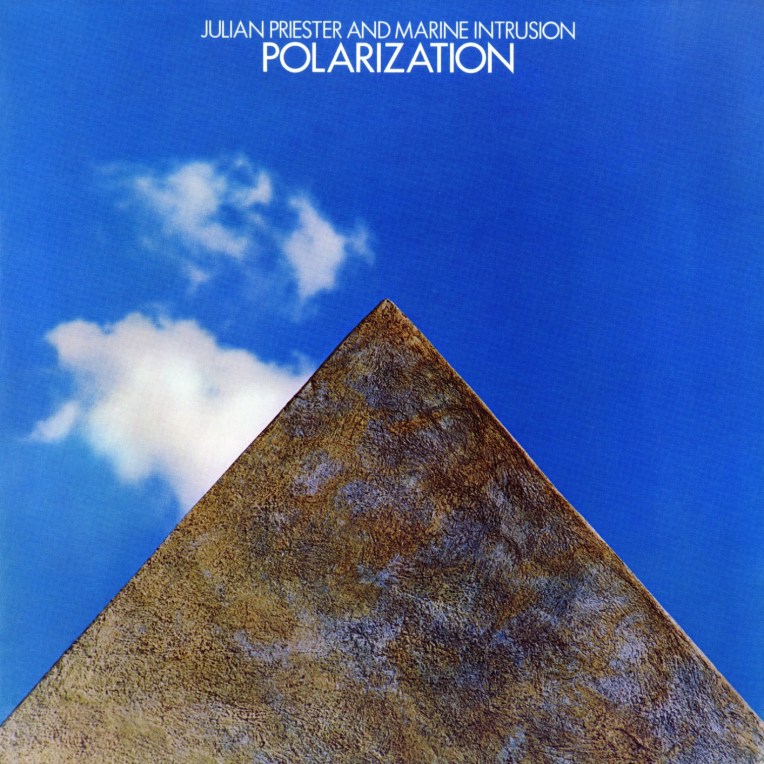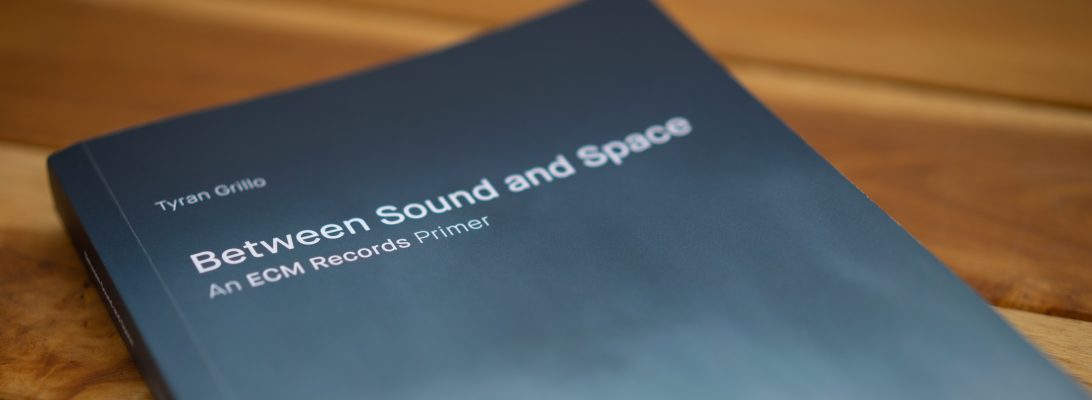
Julian Priester and Marine Intrusion
Polarization
Julian Priester trombone, string ensemble
Ron Stallings tenor and soprano saxophones
Ray Obiedo electric and acoustic guitars
Curtis Clark piano
Heshima Mark Williams electric bass
Augusta Lee Collins drums
Recorded January 1977 at Tonstudio Bauer, Ludwigsburg
Engineer: Martin Wieland
Produced by Manfred Eicher
The trombone is the viola of the brass world. It is arid, languid, and also incredibly beautiful in its range and melodic honesty. And on Polarization, Julian Priester’s ECM follow-up to his 1973 Love, Love session, we get more of that gorgeous depth than we could ever ask for.
The first three tracks form a unified whole. “Polarization” (Priester) begins with two overdubbed trombones improvising in a lofty space. We get some wonderful staccato technique in the left channel, and a wealth of implied energy all around. As the right-hand trombone fades, we hear the slightest indication of drums at the cut’s tail end, of which “Rhythm Magnet” (Priester) fleshes out every audible detail. Synthesized strings lend expanse while bassist Heshima Mark Williams lays down a gorgeous, almost Bill Laswell-like mysticism, albeit with an added twang and sharper features. Ray Obiedo weaves a slack guitar into the mix, and as the horns settle in to their respective stations, the piano lets out a final exaltation. “Wind Dolphin” (Bruce Horiuchi) begins with a cluster of drums. From this, we get a flowing run from brass and flanged guitar. The band breaks into a powerful free-for-all, marked by a “laughing” trombone and piano. “Coincidence” (Obiedo) is a piece for trombone, acoustic guitar, and piano, as beautiful as it is short. “Scorpio Blue” (Curtis Clark) arises from a solo trombone as drums lift the piano skyward into rolling flights of fantasy. The final track, “Anatomy Of Longing” (Curtis Clark), aside from having one of the best titles I’ve encountered in a long time, brings on the funk with electric guitar ornamenting the already fine calligraphy of the brass. And just when you think the music is over, it drips into a simmering sax solo over a pellucid piano and cymbals before the bass line returns with its undeniable insistence. The sax reels while the electric guitar squeals in joy over the thematic reinstatement before hurtling itself forward into an enthralling solo of its own. A smooth nightcap to a phenomenal outing.
While not as consistent in texture as Priester’s earlier effort, Polarization delivers in its many moods and emotional travels. The musicians don’t so much feed off as feed into one another, nourishing a delicate conversation in which agreement is the norm. Their harmonies are tender, the synergy relaxed and intuitive, acute yet soft around the edges. The recording is superb, the resonance at once immediate and expansive.
Unlike its predecessor, this one is still out of print.
<< Pat Metheny: Watercolors (ECM 1097)
>> Taylor/Winstone/Wheeler: Azimuth (ECM 1099)


Hopefully I still got the vinyl…the CD was never printed
I bought this album when it was released back in the seventies partly on the 5star review it recieved from Steve Lake at the time. On first hearing I loved the overall feel the album created, and not what I was really expecting given the other albums I had with Julian playing. I have had to replace it having wore it out and I have now digitised a copy so I can play it as much as I want which is often. Its a real shame it has not been re released, with the interest world wide on all things ecm surely it would come to be recognised as another of those great releases from the seventies. I live in hope.
please manfred , the cd edition ….quick !!!!